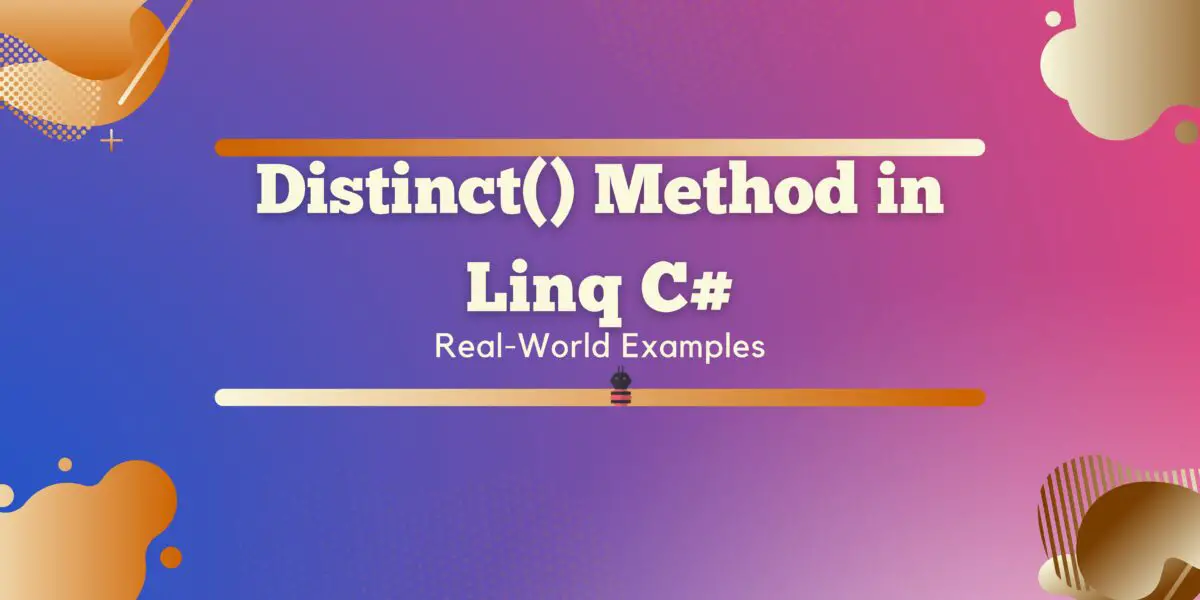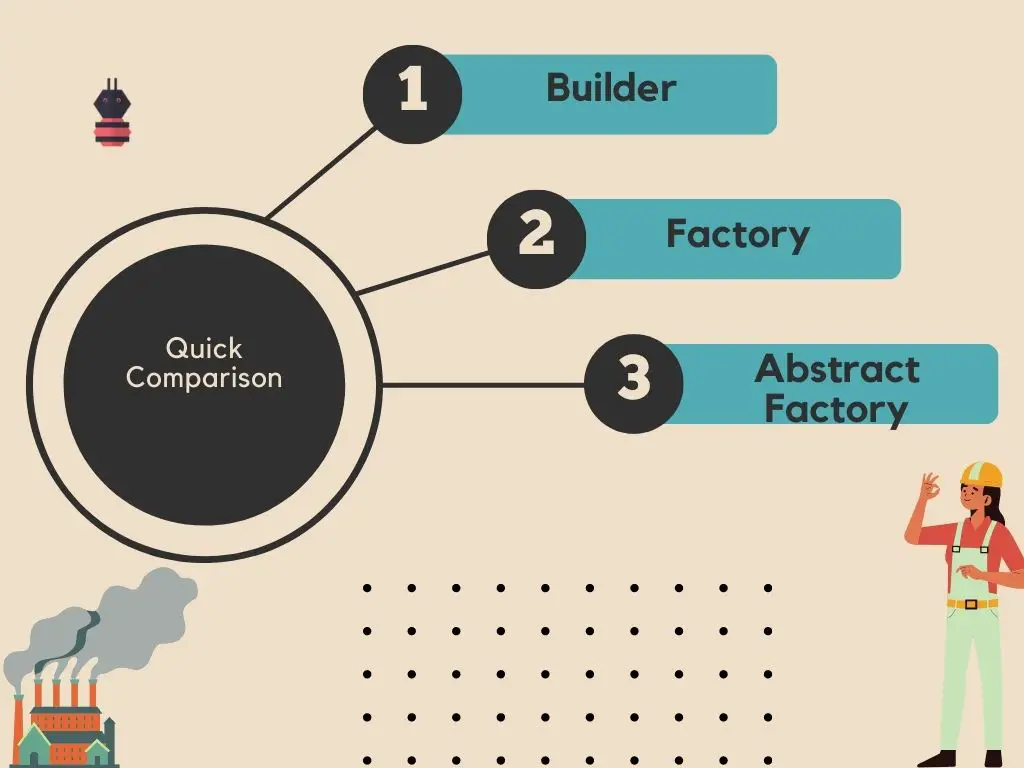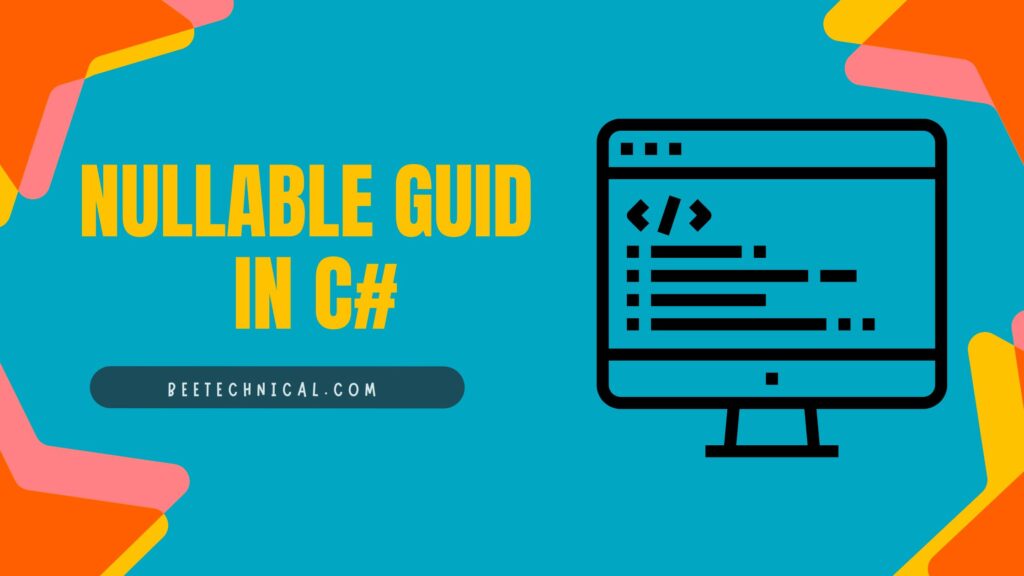Anonymous types in C# are a feature that allows you to define a type without specifying a name for it. Anonymous types are useful for situations where you need to create an object that has a specific set of properties, but you don’t want to define a separate class for it.
One of the most common uses of anonymous types is in LINQ queries, where they can be used to create new objects that contain a subset of the properties from the objects in the original collection.
var person = new
{
Name = "John",
Age = 30,
Occupation = "Software Engineer"
};
How to create Anonymous Types in C#?
Creating anonymous types in C# is straightforward. You can use the new keyword followed by an object initializer to create an anonymous type. The object initializer should contain a set of properties with values assigned to them.
var person = new { Name = "John", Age = 30, Occupation = "Software Engineer" };
You can also create an anonymous type from an existing object by selecting a subset of its properties.
var person = new { Name = "John", Age = 30, Occupation = "Software Engineer" };
var personNameAndAge = new { person.Name, person.Age };
Once an anonymous type is created, you can access its properties using dot notation, just like you would with any other object:
Console.WriteLine(person.Name); // Output: John
What are anonymous methods in C#?
Anonymous methods in C# are a way to define a method without having to give it a name. Instead, you can define the method inline as part of another method’s code. Anonymous methods are often used in event handlers or as arguments to methods that expect a delegate parameter.
public void ExampleMethod()
{
// Create an anonymous method that takes an int parameter and returns void
Action<int> printNumber = delegate(int number)
{
Console.WriteLine(number);
};
// Call the anonymous method
printNumber(42);
}
Anonymous methods are useful when you need to define a small block of code that is used only once and doesn’t require a named method. However, they have some limitations, such as not being able to access out or ref parameters from the enclosing method, and not being able to use async or await keywords.
Anonymous methods using lambda expression
Using lambda expressions is a more concise and elegant way of defining anonymous methods in C#. Here’s an example of the previous code snippet using a lambda expression.
public void ExampleMethod()
{
// Create a lambda expression that takes an int parameter and returns void
Action<int> printNumber = (number) => Console.WriteLine(number);
// Call the lambda expression
printNumber(42);
}
Lambda expressions are a concise way to define small methods inline, and they can be used in place of anonymous methods in most situations. They offer some advantages over anonymous methods, such as being able to access out and ref parameters from the enclosing method, and being able to use the async and await keywords in async methods.
What is the advantage of using anonymous methods?
There are several advantages of using anonymous methods in C#:
- Conciseness: Anonymous methods allow you to define a method inline without having to give it a name. This can make your code more concise and easier to read.
- Simplicity: Anonymous methods are often used for simple, one-time tasks that don’t require a named method. This can make your code simpler and more straightforward.
- Encapsulation: Anonymous methods are often used as event handlers or as arguments to methods that expect a delegate parameter. This can help encapsulate functionality and make your code more modular.
- Flexibility: Anonymous methods can be used in a wide range of situations, and they can be defined using a variety of syntaxes, such as the
delegatekeyword or lambda expressions. This can make your code more flexible and adaptable to different scenarios. - No naming conflicts: Anonymous methods don’t require a name, which means you don’t have to worry about naming conflicts with other methods in your code.
What is the difference between Lambda and the anonymous method?
Lambda expressions and anonymous methods are similar in that they both allow you to define a method inline without having to give it a name. However, there are some differences between the two:
- Syntax: Lambda expressions use a simplified syntax with the
=>operator, while anonymous methods use thedelegatekeyword. - Type inference: Lambda expressions allow the compiler to infer the type of the delegate or expression, while anonymous methods require you to explicitly specify the delegate type.
- Capturing variables: Lambda expressions can capture variables from their surrounding context, while anonymous methods cannot.
- Async methods: Lambda expressions can be used with
asyncandawait, while anonymous methods cannot. - LINQ: Lambda expressions are commonly used with LINQ queries, while anonymous methods are used less frequently.
Can anonymous type be passed as a parameter to a function?
Yes, anonymous types can be passed as parameters to a function in C#.
Since anonymous types are implemented as classes in C#, they can be used like any other class or object. This means that you can pass an anonymous type as a parameter to a method or function just like you would pass any other object.
var person = new { Name = "John", Age = 30 };
PrintPerson(person);
void PrintPerson(object p)
{
var person = (dynamic)p;
Console.WriteLine($"Name: {person.Name}, Age: {person.Age}");
}
In this example, we create an anonymous object with two properties, Name and Age, and then pass it as a parameter to the PrintPerson function. The function takes a object parameter, but we use the dynamic keyword to cast it back to an anonymous object so we can access its properties. The function then prints out the values of the Name Age properties.
Conclusion
In conclusion, anonymous types are a useful feature in C# that allows you to create objects with properties without having to define a new class. They provide a simple and concise syntax for defining temporary data structures and are especially useful when working with LINQ queries, as they allow you to create projections of data with just the properties you need.
One of the key benefits of anonymous types is that they save you the effort of creating a new class when you only need to use the object once or twice in your code. They also help reduce clutter in your code by eliminating the need for extra class definitions.








